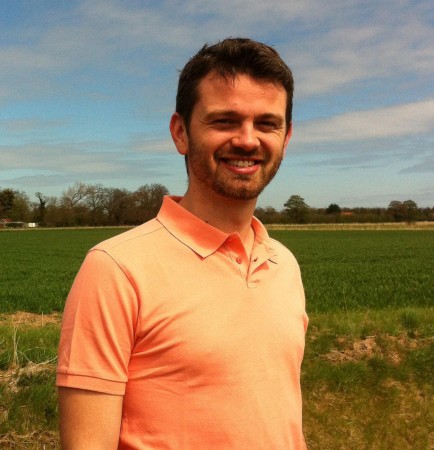Co-operatives have a key part to play if the world is to move to a “human economy” says Oxfam after it revealed that eight people are now as wealthy as the poorest half of the world’s population.
The charity’s report on global inequality, released as the World Economic Forum began in Davos, Switzerland, says eight men share $426bn (£350bn) between them – equivalent to the wealth of the world’s 3.6 billion poorest people.
Blaming corporate tax evasion, widening pay differentials within companies, crony capitalism and a “supercharged shareholder” business model, the report calls for a “human economy” which works “for the 99%”.
This would include environmental sustainability, gender equality and a stronger role for worker-owned businesses.
The report follows on from Oxfam’s long history of working with co-operatives, says Enrich Sahan, head of the charity’s private sector team.
“Co-operatives fit in with our work with social enterprise and Fairtrade,” he added. “It’s part of our DNA, for instance when we helped set up Cafedirect, to be supporting enterprises around the world that are co-owned.”
This work also includes Oxfam’s Enterprise Development programme which offers access to finance, grants and business support.

“We have been supporting enterprises in Nepal, Ethiopia and Rwanda, for example,” said Mr Sahan. “It’s a big part of our approach to inequality… the profits aren’t going to line the pockets of billionaires, they are going to the workers.”
In the report, Oxfam says academic studies show that worker-owned businesses such as Spanish multinational co-op Mondragon, Peruvian Alpaca co-op COOPECAN and worker-owned US clothing brand Eileen Fisher “generate more employment growth and higher pay for their employees”.
It adds: “Government has a key role to play in driving a vision of an economy with a majority of such enterprises; not confining them to the social economy, but helping them to become mainstream.
“Businesses that promise to channel ever-increasing profits to rich investors attract more and cheaper finance, while co-operatives, social enterprises and employee-owned businesses are often confined to accessing debt or philanthropic finance.
“A human economy would tip the scales and favour these business models over the relentless pursuit of profit.”
Mr Sahan said there has been some progress in this direction. “In the UK there’s signs of impressive co-operative growth as a result of government policy with tax breaks for employee-owned enterprise… and a government-funded scheme for small enterprise.”
The UK also needs a favourable trade and development agenda to encourage co-ops in poorer countries, he added, and its development group CDC “has an important role to play in tackling inequality”.
And although Brexit creates dangers as well as opportunities as trading relationships change, Mr Sahan said the vote itself was partly a response to inequality.
“If we want a more equal system we need to develop partnerships that are going to deliver those results,” he added.
“If we’re serious about tackling inequality, we need to look at what’s happening in the business world so that we’re not just lining the pockets of billionaires.
“Co-ops should be jumping up and down, they need to remind people that they’ve been here doing this for 200 years, that they already have an alternative to this inequality.
“And they need to be taking an innovative approach to the world’s problems if we want to see alternatives to our current system.”
One area of progress, he added, is Oxfam’s research on the development of more supportive networks in company supply chains.
He says the charity is in talks with big-name retailers who want to put co-ops in their supply chains “as long term business partners”.